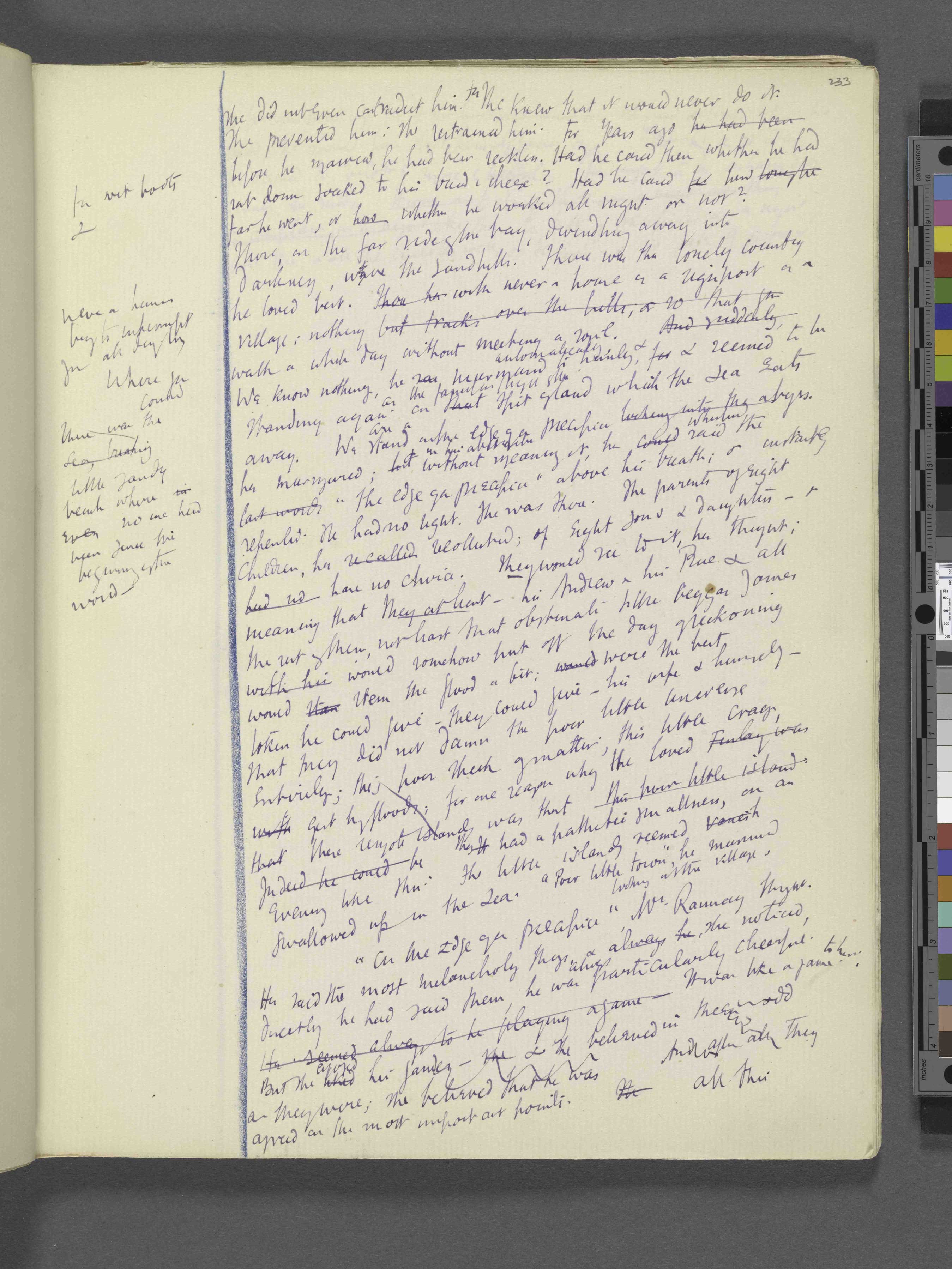
233she did not even contradict him.forShe knew that it would never do it.She prevented him; she restrained him. For years ago he had beenbefore he married, he had been reckless. Had he cared then whether he hadsat down soaked to his bread & cheese? Had he cared for how long hefar he went, or how whether he worked all night or not?for wet boots&never a humanbeing to interruptyou all day long.Where youcouldThere was thesea, breakinglittle sandybeach where ineven no one hadbeen since thebeginning of theworldThere, on the far side of the bay, dwindling away intodarkness, where the sandhills. There was the lonely countryhe loved best. Those h with never a house or a signpost or avillage; nothing but tracks over the hills, & so that youwalk a while day without meeting a soul.And suddenlyautomatically&We know nothing, he sai murmuredto himself, for & seemedto beon the familiar [?] of thestanding again on that spit of land which the sea eatsare ?aaway.We stand on the edge of a precipice looking into the abyss.in his abstractionhe murmured;butwithout meaning it, he could said thewhisperedlast words "the edge of a precipice" above his breath; & instantlyrepented. He had no right. She was there. The parents of eightchildren, he recalled recollected; of eight sons & daughters - &had no have no choice.They would see to it, he thought;meaning that they at least - his Andrew & his Prue & allthe rest of them, not least that obstinate little beggar Jameswith his would somehow put off the day of reckoningwould stave stem the flood a bit; would were the besttoken he could give - they could give - his wife & himself -that they did not damn the poor little universeentirely; this poor speck of matter; this little crag,with girt by floods; for one reason why he loved Finlay wasthat these remote islands was that this poor little islandIndeed he could beTheyIt had a pathetic smallness, on anevening like this.The little islands seemed vanishswallowed up in the sea."Poor little town", he murmuredlooking at the village"On the edge of a precipice", Mr. Ramsay thought.He said the most melancholy things & always he, she noticed,alwaysdirectly he had said them, he wasparticularly cheerful.He seemed always to be playing a game -It was like a gameto himenjoyedBut she liked his gamesshe & she believed in them oddas they were; she believed that he wasAnd after all theyagreed on the most important points.ThAll this









